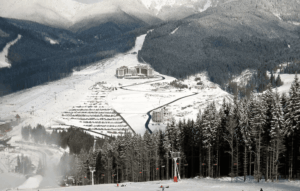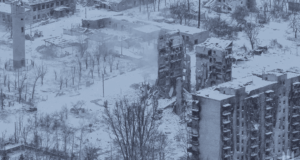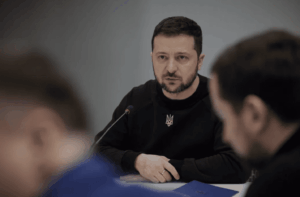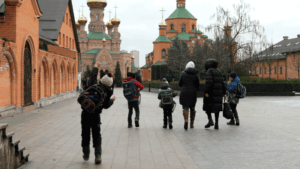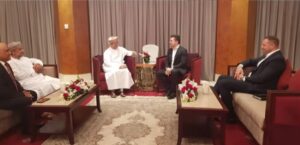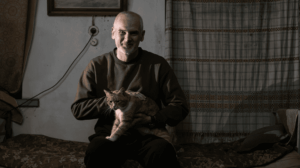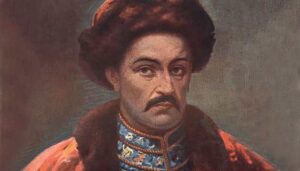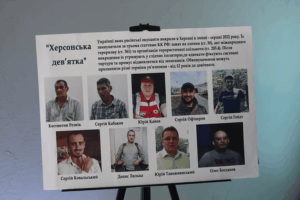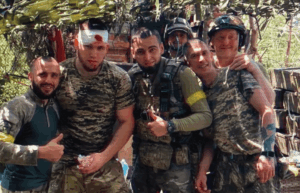On February 24, 2022, Russia openly, not in a hybrid way, violated the borders of the Ukrainian state. Since that moment, the creeping occupation of the country has been ongoing for the fourth year, which the defense forces are desperately trying to contain. And the only thing the enemy lacked until last Tuesday, July 22, was a political invasion into the very heart of the Ukrainian capital. Because the turn away from Europe toward authoritarianism is exactly the tool Russia has used for decades to keep its satellites under control.
Until July 22, Ukraine’s history had already seen various political decisions, such as the Kharkiv Agreements or the “January 16 laws,” which planted “explosives” in the future of our state, orchestrated by the Kremlin.
But how did it happen that, in the midst of Russia’s full-scale invasion of Ukraine, a decision was made by the votes of Ukrainian parliament members and the hands of Ukrainian authorities that called into question not only European integration, but also the very existence of the country?
A decision that caused not just political turbulence, but open concern from international partners — who are already speaking about a possible suspension of funding for Ukraine — and led to internal resistance.
Who was behind the attempted blitzkrieg to destroy the anti‑corruption institutions?
How were members of parliament persuaded to support the fateful vote?
And did those in the chamber understand that they were deciding the trajectory of the entire country?
Ukrainska Pravda – after speaking with dozens of sources from Zelenskyy’s team, representatives of law‑enforcement agencies, as well as members of parliament – reconstructs how one of the most dangerous decisions by the Ukrainian authorities in the past decade was made.
Preparing for H‑Hour. Creating the Temporary Investigative Commission and appointing the Prosecutor General
The plans to destroy the independent anti‑corruption infrastructure did not come together hastily.
Dissatisfaction within Zelenskyy’s team over the “independence” of anti‑corruption officials had been growing for months, in proportion to the rising number of notices of suspicion issued to sitting officials.
Over the past two years, members of the ruling elite have come under NABU’s scrutiny — the incumbent head of the Antimonopoly Committee, Pavlo Kyrylenko, the Minister of Agrarian Policy, Vitaliy Koval, and, of course, several dozen members of parliament from the ruling faction.
The scandal involving Vice Prime Minister and Minister of National Unity Oleksiy Chernyshov was only a matter of time. In mid-June of this year, the first suspicions in the case were formally issued, and the sitting vice prime minister went on a business trip — from which he had to be brought back by officers of the Main Directorate of Intelligence (HUR).
Against this backdrop, on June 19, the Verkhovna Rada created a Temporary Investigative Commission (TIC) “to investigate possible cases of corruption in law enforcement and judicial bodies.”
The formal purpose of the TIC was to study the activities of the Prosecutor’s Office, Police, Security Service of Ukraine (SBU), NABU, State Bureau of Investigation (DBR), and courts at all levels.
The commission was headed by Serhiy Vlasenko from Batkivshchyna, with Maksym Buzhanskyi from Servant of the People as his deputy, and Maksym Pavlyuk was also a member. He is the nephew of the well-known businessman and former Zelenskyy favorite Illia Pavlyuk — the same one who once led a whole group of deputies within Servant of the People and is now glad to serve the president, even in a minor role.
The latter two would later play a key role in promoting and legitimizing the scandalous bill aimed at undermining the independence of the anti‑corruption infrastructure.
Given the political context, the creation of this Temporary Investigative Commission (TIC) appeared not as an attempt at systemic cleansing, but as a legal tool of pressure and preparation of the political groundwork for the next blow to NABU and SAPO — a legislative one.
In an interview with Ukrainska Pravda, Vlasenko explained his decision to create the TIC:
“The idea to create such a commission came to me quite some time ago. My position is zero tolerance for corruption in any law enforcement agencies. Unfortunately, I believe that all the reforms of the law enforcement system have only led to an increase in corruption, not its reduction,” he assured.
Thus, the primary plan to dismantle the independent anti‑corruption infrastructure in Ukraine had a clear sequence of actions.
Through public discussions, inquiries, information leaks, and statements by commission members, the ultimate trust in the anti‑corruption agencies was to be undermined. This plan was partly implemented through a wave of discrediting posts in popular Telegram channels.
The next step was to introduce legislative changes under the guise of “optimization,” “reform,” or strengthening parliamentary control. Behind these appealing slogans were attempts to shift the balance of powers in order to strip independent institutions of key levers of influence — primarily procedural autonomy.
In this context, the sudden appointment of 35-year-old Ruslan Kravchenko as Prosecutor General no longer seemed coincidental.
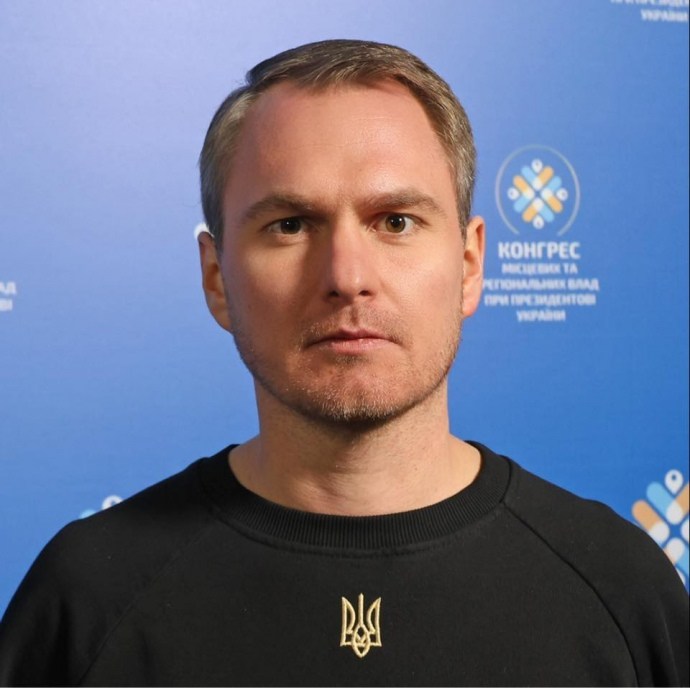
Formally, this was supposed to be perceived by the public as a renewal: a young lawyer, a public face of investigations into war crimes.
As it later turned out, his appointment directly coincided in time with the moment of Minister Oleksiy Chernyshov’s “non-return” — a key figure whom NABU and SAPO had already searched at the end of May in a major corruption case, and about whom the President’s Office suspected a notice of suspicion would soon be served.
“When they went after Chernyshov, I felt they wouldn’t forgive it and were preparing something like this,” recalls one heavyweight in the anti-corruption hierarchy.
It was precisely in those days, when Chernyshov was already abroad and had no intention of returning, that Kravchenko held his final meeting at the President’s Office with the country’s leadership.
The first project discussed with Kravchenko was… the destruction of the independence of the anti‑corruption system. “Think about how,” — in such a soft yet perfectly clear form the task was put to the youngest Prosecutor General in Ukraine’s history.
The key “producer” of this project, as with all other sensitive decisions, was the head of the President’s Office, Andriy Yermak.
According to several UP sources in law enforcement, at that meeting Kravchenko assured the country’s leadership that he could “handle” this task.
Kravchenko’s predecessor — acting Prosecutor General Oleksii Khomenko — “at least tried to argue back” against this or that “wish list” from the Office and maintained “good‑neighborly” relations with the anti‑corruption bodies. Perhaps that is why he left almost no mark after eight months at the helm of the Prosecutor General’s Office, whereas the President’s Office suddenly needed someone who would execute orders rather than question the advisability of doing so.
Among the reasons cited for the head of state’s acute dissatisfaction with the anti‑corruption officials’ actions regarding Chernyshov, one word was repeatedly heard: “family.”
According to UP sources familiar with the materials of the court motions, Chernyshov’s phone, which was seized during the searches, contained family photos of the vice prime minister with top state officials. In particular, there were photos with the president and children dated 2022.
Law enforcement officers used these photos to substantiate the risks related to Chernyshov’s connections and possible influence on the course of the official investigation — including the possibility of the suspect fleeing the country.
On the day of the vote to appoint Kravchenko as Prosecutor General, information was actively circulating in law enforcement circles: one of his first tasks would be to “save” Oleksiy Chernyshov by transferring the case from NABU to an agency controlled by the President’s Office. A similar situation had already occurred once with the case of Oleg Tatarov, the deputy head of the President’s Office and the informal coordinator of law enforcement agencies.
At the time, Kravchenko publicly and confidently denied such a possibility. But, as anti‑corruption officials themselves note: “Why take the case away from NABU and SAP if you can simply bring NABU and SAPO under your control and leave the case where it is?”
The feeling that the vote in the Rada for the Prosecutor General — a position that had remained unfilled for more than eight months — was not merely a formality but part of a clearly planned scenario only grew stronger after a visit to SAPO prosecutors by Robert Horvat, a member of parliament from the Dovira group.
“We executed it (opened a criminal proceeding — UP) a year ago — in a case about the theft of 300 hectares of land in Zakarpattia. He himself asked for a plea deal. He agreed to all the conditions, including that the direct perpetrators of the scheme would go to prison. And then, when the deal was already at the final stage, he showed up at the prosecutor’s — immediately after Kravchenko’s appointment — and said he would not sign the deal. Because ‘Klymenko (the head of SAPO — UP) will be taken out soon,’” a source in an anti‑corruption body recounts.
A month later, on July 22, Horvat voted for the scandalous bill No. 12414, which places NABU and SAPO under the authority of Prosecutor General Ruslan Kravchenko. Along with him, nine of his colleagues from the Dovira group also voted in favor.
Horvat also supported Kravchenko’s own appointment. And if the autonomy of the Specialized Anti‑Corruption Prosecutor’s Office were removed, Kravchenko could then directly guarantee loyal MPs — particularly those who had cases in NABU — favorable terms for plea agreements.
“This was one of the trump cards used to ‘buy’ the Dovira group,” a source in the anti‑corruption community is convinced.
Thus, the Horvat case is yet another indication that the Prosecutor General may have lied. Answering reporters’ questions two days after the passage of bill No. 12414, Ruslan Kravchenko assured that he learned about his new, almost unlimited powers after the fact — from the Telegram channel of MP Yaroslav Zhelezniak.
Notably, another figure in a high‑profile NABU and SAPO investigation — Serhiy Labaziuk, an MP from the For the Future group — also voted in favor of the bill.
In November 2023, NABU reported that the MP, who also owns a large construction and agricultural business, is suspected of attempting to bribe top officials in the reconstruction sphere. The sting operation was made possible thanks to cooperation with the then sectoral minister, Oleksandr Kubrakov.
“Even those who historically were not inclined to unite came together (during the vote),” a UP source in law enforcement notes.
“Because they will come for us, too,” a law enforcement officer quotes the motivation of MPs who are not yet subjects of NABU and SAPO criminal proceedings.
Yulia Tymoshenko’s faction in parliament could also have had its own motive to support the destruction of the “anti‑corruption system.” Tymoshenko and her colleagues from Batkivshchyna provided 15 votes; moreover, the leader herself personally took to the podium to advocate for such a destructive step, to the applause of other admirers of “lawlessness.”
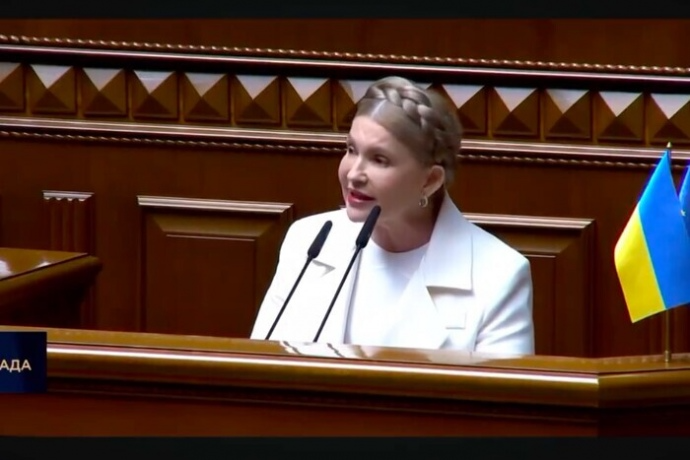
Her speech mysteriously coincided with the messages about external governance that Russian ruler Vladimir Putin had voiced back in 2022 at the start of the full‑scale invasion.
According to UP’s sources in political circles, Andriy Yermak personally communicated with Tymoshenko regarding plans for the vote. And Batkivshchyna’s motive could have been, among other things, the fact that in November 2023 NABU and SAPO “suspected” Poltava businessman Serhiy Bielashov in a case concerning gas procurement schemes for Ukrzaliznytsia’s needs.
The investigation believes that he was involved in a scheme that caused 206 million UAH in damages. Bielashov not only heads Batkivshchyna’s faction in the Poltava Regional Council and owns the Ukrainian Capital bank, but is also considered one of the party’s main sponsors.
The seriousness of the suspect could also be inferred from the fact that Yulia Tymoshenko personally attended the court hearing on Bielashov’s preventive measure, accompanied by other MPs, to act as a guarantor for the businessman.
Bielashov’s lawyers proposed to the prosecutor that Klymenko (head of SAPO — UP) meet with Tymoshenko, but SAPO refused, a UP source reports.
Thus, the authorities’ initial plan envisioned that the Temporary Investigative Commission would create “legal” grounds to restrict the independence of NABU and SAPO, after which control would pass to a loyal Prosecutor General. But something did not go according to plan.
At the most critical moment — when this entire construct was just starting to be put into motion and it was still possible to maintain the appearance of a supposedly “legal process” — events occurred that completely shifted the focus and provoked a sharp, nervous reaction at the very center of power.
First came the notice of suspicion to Vice Prime Minister and Minister of National Unity Oleksiy Chernyshov, whose return from a business trip the entire country was following.
Then came the searches of the home of Deputy Head of the President’s Office Rostyslav Shurma in Germany. Not in Ukraine, not in a nominal office or on a work computer, but in a private residence abroad.
And finally, information emerged that yet another figure was about to receive a notice of suspicion — Timur Mindich, a close friend of Zelenskyy.
These three episodes together became the culmination of accumulated tension for the president.
“Zelenskyy was furious,” recalls one member of his inner circle. “He was literally shouting: ‘Why do I even need any of you here if you can’t resolve just one matter — the Chernyshov case?’”
After this, sources say, the President’s Office made a strategic decision — not to wait for the process through the Temporary Investigative Commission to be completed. Instead, they would simply speed everything up and move to a direct offensive.
The Power Offensive and the Fateful Vote
Tuesday morning, July 22. Around 08:40, an unexpected meeting of the Verkhovna Rada’s Law Enforcement Committee begins.
The meeting was not announced; neither journalists nor part of the committee members themselves knew about it. Committee chairman Serhiy Ionushas was away on a business trip. His first deputy, Andriy Osadchuk from Holos, did not attend the committee. Therefore, the task of advancing the scandalous bill was entrusted to Maksym Pavlyuk from the Servant of the People faction.
He was the one who opened the committee meeting and proposed to consider bill No. 12414.
Some deputies physically didn’t have time to join the discussion on Zoom. In particular, committee member Oleksandra Ustinova was not informed about the meeting at all. Meanwhile, the committee was considering a completely different version of the bill — not the humanitarian one that had passed the first reading, which concerned the search for people missing during the war, but a totally different text.
The final draft, which was practically formed during the meeting itself, included provisions that significantly changed the functional logic of the anti-corruption system: NABU and SAP were to be placed under the control of the Prosecutor General.
The author of these amendments was MP Maksym Buzhanskyi.
According to sources in “Servant of the People,” recently Buzhanskyi gathered a small team of 7–8 deputies from the remnants of what was once the powerful “Kolomoisky group” within the party. These are mostly Dnipro list MPs and single-mandate deputies whose votes he controls in internal parliamentary dealings.
Within a few hours, the bill was brought to the session hall. Nobody informed the “Servants” that the amendments were being considered without the committee chairman present.
Moreover, many deputies told Ukrainska Pravda that the Office of the President and the faction leadership used them “in the dark.”
Deputies were gathered under the pretext that the Rada was going to vote on a “very important” appeal to the US Congress to recognize Russia as a terrorist state.
Many deputies had their foreign trips and regional visits canceled because everyone was supposed to come.
When the deputies gathered, they were told — including by the faction leader David Arakhamia and his deputy Andriy Motovilovets, who usually coordinates vote gathering — that “the vote on the US matter is important, but the main thing will be after that.”
“And what is it about? People really had no idea what they would be voting for. They were told it was a ‘marker’ vote, fundamental for the president, basically a watershed: you are for or against the president. Where is the text? ‘Why do you need the text? Just vote, it’s important.’ This conversation happened right in the hall 20 minutes before the vote,” admits one “Servant of the People” deputy.
“At first, many didn’t understand what they were voting for. But then, once they figured it out, it didn’t scare them — on the contrary. It was like everyone had been waiting for this. Most definitely understood what it was about. Though there were people like Belenyuk who really didn’t get it and later raged that they were set up. But overall, when Tymoshenko spoke about her ‘external control,’ the hall erupted into a full-on frenzy. Buzhanskyi needed a priest — he was in such an ecstatic state,” recounts another “Servant,” who did not vote for the scandalous law, off the record.
After a brief discussion, the factions “Holos” and “European Solidarity” attempted to block the podium, demanding to withdraw the document from consideration and to remove the speaker Ruslan Stefanchuk from presiding over the session. Some members of “Servant of the People” also opposed this. However, at 13:12, the law was passed with 263 votes. Almost the entire “mono-minority” and its satellite oligarchic groups voted “for.” Unexpectedly, “European Solidarity” gave three votes in favor. Petro Poroshenko himself, whose case concerning the “Medvedchuk pipeline,” according to Ukrainska Pravda, was returned to be investigated by NABU again, abstained from voting.
The parliamentary speaker immediately signed the document and sent it to the president for signature.
A rally formed near the Office of the President demanding a veto of the law, with NABU and SAPO heads Semen Kryvonos and Oleksandr Klymenko publicly urging Volodymyr Zelenskyy to exercise his veto power.
But the president still signed it, although he could have refused.
All this happened the day after high-profile searches by the SBU and the State Bureau of Investigations at the homes of NABU detectives.
For many in the SBU, such a straightforward and rapid attempt to dismantle NABU following the conducted searches came as a shock. Equally surprising was the fact that the SBI officers on the same day decided to recall all the old traffic incidents involving NABU employees, dating back to 2021.
At least, this is what interlocutors in the security agency assured Ukrainska Pravda.
According to several informed sources among law enforcement officials, the Prosecutor General personally called the responsible persons at the State Bureau of Investigations and urged them to act quickly. As of now, this has caused a number of misunderstandings within the law enforcement bloc. After all, Kravchenko is “a new and not very experienced person and does not yet understand that this position is not for life,” said one influential representative of the law enforcement system.
A special focus in this entire story deserves Oleg Tatarov’s figure, since Kravchenko’s appointment was not agreed upon with the main overseer of the law enforcement system. And this is the first time in many years that Tatarov’s opinion was of no use either to the first or second persons in the country.
“Kravchenko is liked by the president, and Yermak has long been nursing plans to complete the political firmament with executors loyal directly to the president, and even more to him personally, rather than his deputies,” shared one member of Zelenskyy’s team with Ukrainska Pravda.
Several interlocutors of Ukrainska Pravda within the security bloc link the crisis suddenly engulfing the country’s political elite to the loss of Andriy Portnov, who was killed in Spain two months ago.
Immediately after the assassination, political circles began to talk about how Zelenskyy’s vertical lost its brain center, and that Tatarov — who was not only a close friend but also wielded significant influence over the country’s situation — lost much of his power.
“Oleh will never again be as influential as before,” emphasized one official from Zelenskyy-Yermak’s security vertical at the time. However, although Tatarov was not the mastermind behind the scheme to dismantle NABU and SAP, he got involved at the final stage of the operation when votes from MPs were needed.
Some interlocutors in both independent and Office-of-the-President-dependent law enforcement agencies insist that alongside Kravchenko, other talented lawyers have emerged to replace Portnov in the country’s political life — headed by former deputy military prosecutor Dmytro Borzykh.
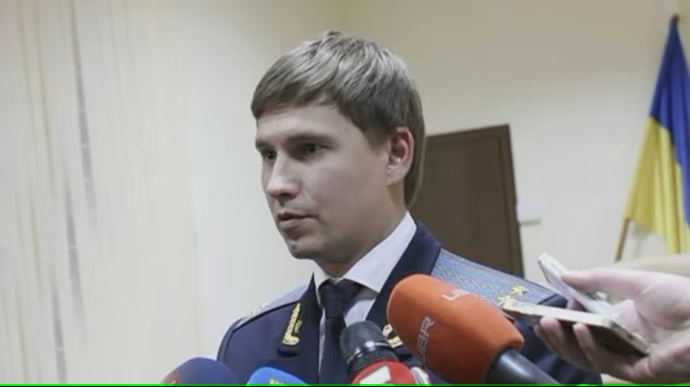
Dmytro Borzykh and Ruslan Kravchenko have been well acquainted since their joint service in the military prosecutor’s office. Both worked under the leadership of Chief Military Prosecutor Anatoliy Matios and belonged to the so-called “Matios Guard” — a group of prosecutors who played an important role in processes from 2014 to 2019.
Borzykh was one of Matios’s most influential deputies and had a reputation as a tough and loyal executor.
After leaving the prosecutor’s office, he moved into private practice and founded a law firm specializing in high-profile cases, particularly those related to law enforcement officers, officials, and the judicial system. According to Ukrainska Pravda’s sources, Ruslan Kravchenko, after his appointment as Prosecutor General, considered Borzykh a candidate for one of the leadership positions on his team.
However, this plan was thwarted by a suspicion announced by NABU and SAPO in April 2025 as part of a case concerning illegal access to the closed section of the judicial register. According to the investigation, Borzykh and his colleagues systematically obtained information about classified court decisions, including searches, using a special script even before this information became available to the parties involved.
Despite this, according to sources, Borzykh remains an informal advisor to the Prosecutor General. He holds no official status but continues communication with parts of the prosecutorial community and participates in unofficial discussions. Borzykh is named as a possible consultant involved in the work on draft law 12414.
“A very well-written law. Only someone deeply embedded in the system could have written it,” says an influential source from Ukrainska Pravda within the same system. He adds, “Only there’s a mismatch with the instinct of self-preservation.”
Ruslan Kravchenko responded to Ukrainska Pravda’s inquiry as follows: “Yes, I know Dmytro Borzykh — he served as Deputy Chief Military Prosecutor during the period when I also served in the prosecutor’s office. Dmytro Borzykh was never considered for the position of Deputy Prosecutor General, regardless of his personal circumstances. Regarding communication — I do not maintain relations, just like with Anatoliy Matios.” Although the inquiry did not ask about ties to the former head of the military prosecutor’s office.
That Kravchenko is not opposed to competing with Tatarov for influence over the security bloc may be indicated by another almost unnoticed fact.
Law 12414 protects all top officials from NABU and SAPO (including Yermak), except for the head of the SBU and his deputies, who formally remain within the sphere of influence of the office’s overseer.
The fact that the SBU was used as a “torpedo” in a special operation, as a result of which the Service was left alone to face NABU and SAPO, may also indicate other peculiarities in the attitude of the president and his deputy towards the security service.
On Thursday, July 23, the head of NABU visited the SBU at the invitation of its director Vasyl Malyuk. During this meeting, the parties agreed on mutual understanding. Although the anti-corruption officers note that the service unofficially continues working not only against NABU but also against SAPO.
Moreover, NABU and SAPO already have a detailed analysis of all employees against whom the SBU and DBR conducted investigative actions last Monday. Almost all these people are directly connected to investigations involving top officials from Zelenskyy’s closest circle.
In particular, as anti-corruption officers assert, Ruslan Magamedrasulov, currently suspected of high treason, was one of the key employees documenting the president’s friend Timur Mindich in the same apartment where the president himself had also been.
Because of this, both the NABU staff and SAPO prosecutors are currently significantly demoralized and are waiting for a resolution not only regarding the future of both institutions but also concerning their colleagues.
“Either the SBU proves the validity of the suspicions, or we are being punished for doing what we are legally required to do — exposing high-level corruption,” laments one influential member of the anti-corruption system.
Another representative of the “victims” adds: “Just two years ago, we prioritized resources on cases involving hundreds of millions of hryvnias in damages to the state. Now, we are already spending resources on cases involving billions in energy, weapons, and reconstruction.”
Double backflip of the Verkhovna Rada. Aftertaste. Guarantees
Throughout the entire day of July 29, deputies in the “Servant of the People” party chat tried to at least obtain a preliminary agenda for the day of the re-vote.
Only by late Tuesday evening did they get a response — on Thursday morning there will be a faction meeting and a meeting with the president where they can express all their concerns to him.
“Just last week, immediately after the vote, many deputies demanded some kind of satisfaction — everyone was offended, even calling for an internal investigation. But the closer it gets to the re-vote, the less belief there is that anyone will actually dare to protest. Everyone is afraid of everyone,” — summarizes one of the “Servants” after reading news from the chat.
At the same time, sources from law enforcement circles told Ukrainska Pravda about deputies’ desire to receive some illusory guarantees that after NABU and SAPO regain their independence, they will not zealously pursue exactly those parliamentarians who so actively voted “for” Law 12414 to their own applause and without hiding inappropriate satisfaction.
Such satisfaction, which the Ukrainian parliament can hardly afford in the fourth year of full-scale invasion, given the challenges accumulated, including the lack of subjectivity of this parliament. Because any position may lead to a travel ban and rapid loss of other privileges for the “obedient” deputies.
Sources close to the Office of the President told Ukrainska Pravda about six possible suspicions against deputies of the president’s faction regarding illegal enrichment and false declarations, which were supposedly ready even before the vote, and now even more so.
In contrast, influential representatives of the anti-corruption vertical emphasized in conversations with Ukrainska Pravda: “Well, we are not the SBU or the DBR. What political persecution? We have worked and continue to work on these principles. This is our guarantee of security. But if the political authorities do not want to fight corruption, it is many times harder to achieve what society expects.”
The political will that President Volodymyr Zelenskyy repeatedly emphasized before and immediately after his election either exists or it does not.
And already this Thursday, the day of the vote on restoring the independence of NABU and SAP, Ukrainian society is unlikely to watch this calmly — even if the corresponding bill is adopted. Because over the past year, the authorities have made a series of decisions indicating systemic resistance to reforms — in the sphere of defense procurement by dissolving the supervisory board of the AOZ, in ARMA, customs, and the BEB. And the most cynical attempt to destroy NABU and SAP only crowned this chain.
Previous actions by the authorities did not provoke an adequate response from either Ukrainian society or Western partners. That is why it was decided to act quickly — in the middle of summer, during vacation season, when people’s attention is minimal. This way, it is easier to neutralize the effect of destroying anti-corruption bodies, which, as expected at Bankova, everyone will forget about in a week.
This is exactly how the situation is viewed in the President’s Office, according to sources in political circles speaking to Ukrainska Pravda: “There was no sense that people would take to the streets. Or that partners would start calling the president.”
This also explains why Bankova was completely unprepared for communication — on the evening of July 22, when people gathered near the Franko Theater, the president’s traditional address only appeared deep into the night. And without a single word about the protests.
Deputies from the presidential faction and even party leadership gave no public comments for a whole day — they themselves did not understand what would happen next. And only on Telegram channels controlled by the President’s Office, instead of mentions of protests across the country, an interview with newly appointed Prime Minister Yulia Svyrydenko for a Western publication was circulated under the telling headline:
“The problem of corruption in Ukraine is greatly exaggerated.”
Tags: anti‑corruption rollback EMPR.media independence undermined nabu prosecutor general SAPO special operation Ukraine Politics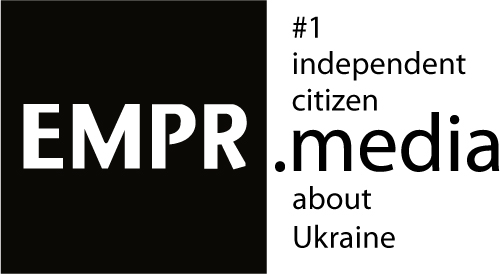
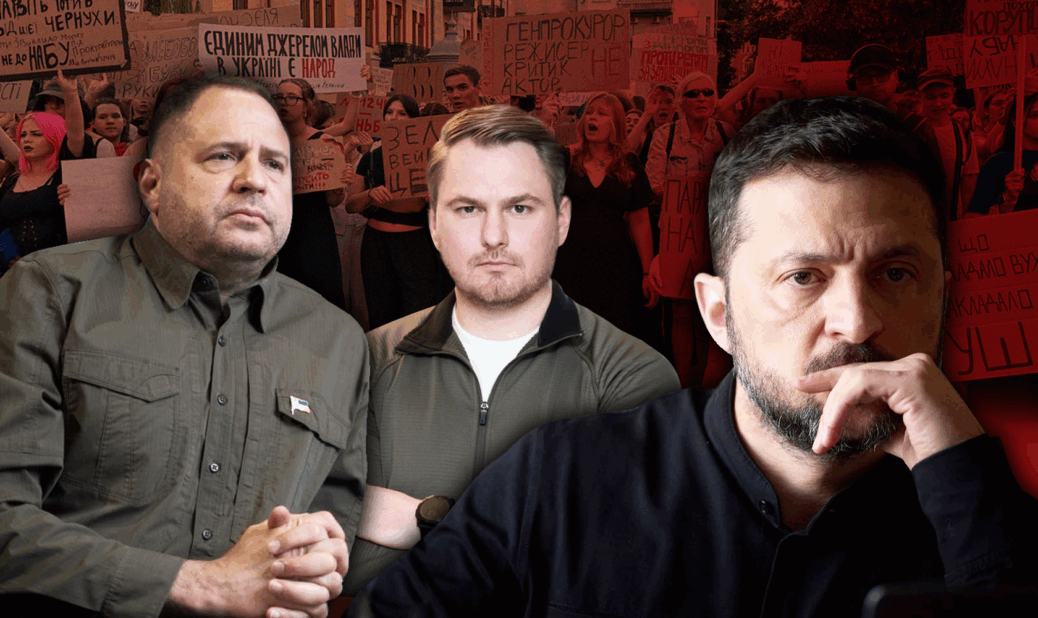

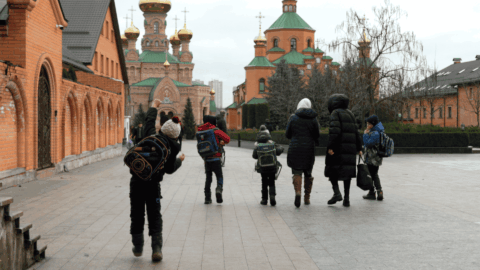
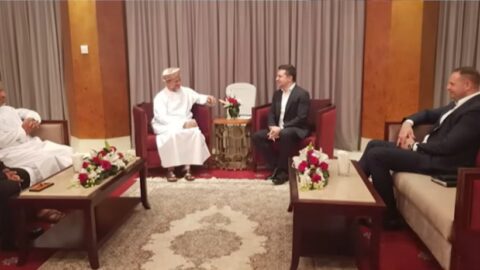
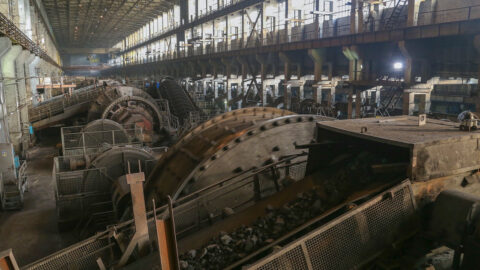
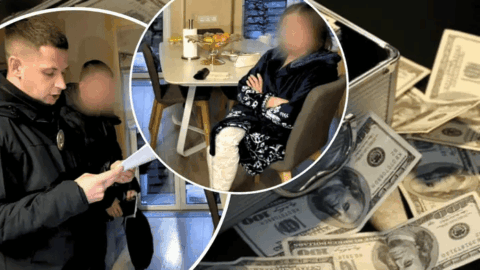
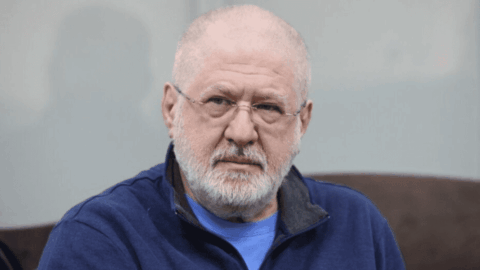

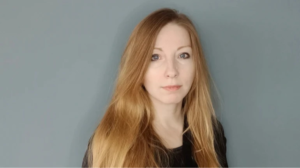
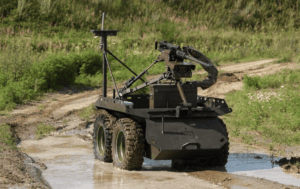
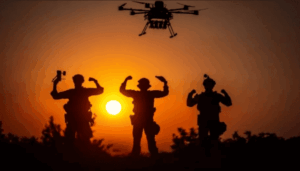
![Ukrainian President Volodymyr Zelenskyy and French President Emmanuel Macron speaking during their meeting in Paris to align on air defense and diplomatic strategy ahead of Coalition talks. :contentReference[oaicite:2]{index=2}](https://empr.media/wp-content/uploads/2026/01/macron-300x156.png)
